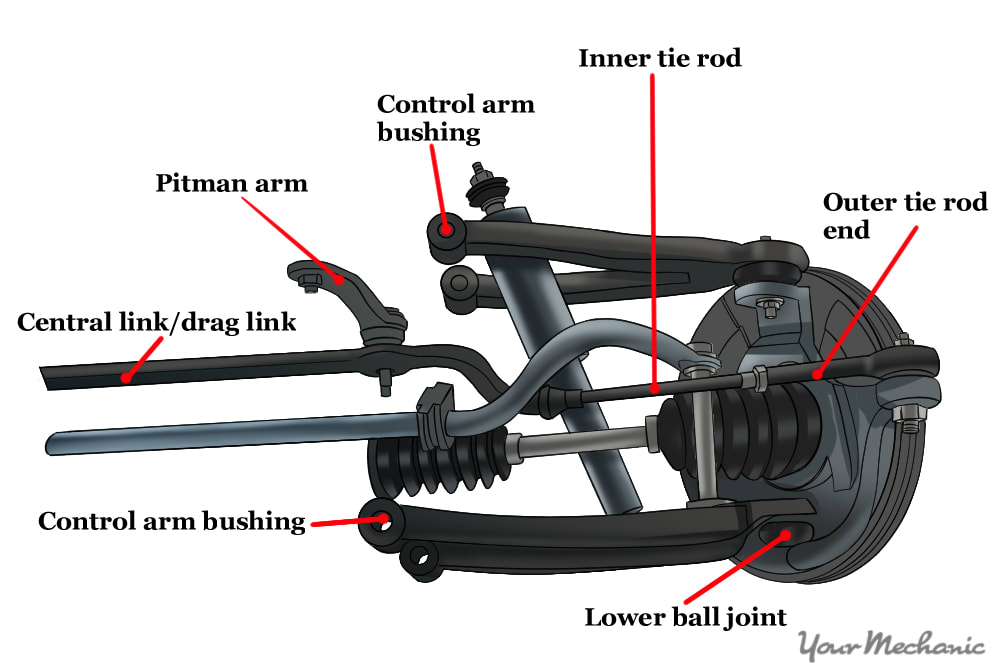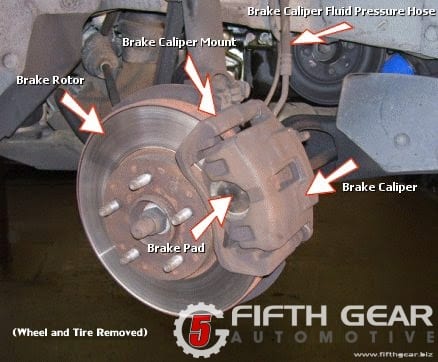Have you ever been driving along, enjoying your favorite tunes, when suddenly you feel an unsettling vibration in your steering wheel? It’s not just an annoying distraction; it’s a sign that something may be off with your vehicle.
Ignoring it could lead to bigger, more expensive problems down the road. We’ll uncover the reasons why your steering wheel might be vibrating and how to address them before they escalate. Understanding these causes can help you maintain control of your car and ensure a smoother, safer ride.
Stick with us as we explore what might be going on under the hood and how you can fix it.

Credit: www.yourmechanic.com
Why Is My Steering Wheel Vibration
Experiencing steering wheel vibrations often points to issues like unbalanced tires or worn suspension components. Such vibrations can affect driving comfort and safety. Regular maintenance checks can help identify and fix these problems.
Driving smoothly is crucial for a comfortable journey. Yet, feeling your steering wheel shake can be unsettling. It’s not just a nuisance; it signals underlying issues. Let’s explore why your steering wheel might vibrate and what you can do about it.
Uneven Tire Wear
Tires play a key role in steering stability. Uneven wear can lead to vibrations.
- Tire Misalignment: Misaligned tires cause uneven wear and shake the steering wheel.
- Low Tire Pressure: Underinflated tires don’t grip evenly, leading to vibration.
- Worn-Out Tires: Tires with worn treads fail to maintain balance, causing shakes.
Brake Issues
Brakes ensure safety. Problems here can affect steering wheel stability.
- Warped Brake Rotors: Distorted rotors create uneven braking and vibrations.
- Sticking Brake Calipers: When calipers stick, they cause inconsistent braking, leading to shakes.
Suspension Problems
Suspension is vital for a smooth ride. Faults here can cause steering wheel movement.
Suspension components absorb shocks and help control the vehicle. If any part fails, it can lead to vibrations. Broken or worn-out suspension parts often cause steering wheel shakes, affecting your drive. Regular checks can prevent these issues.
Engine Troubles
Engine performance affects overall vehicle behavior. Vibrations can stem from engine problems.
- Engine Misfire: Misfires disrupt smooth engine operation, causing vibrations.
- Loose Engine Mounts: Poorly secured mounts can lead to engine movement and steering wheel shake.
Wheel Balancing
Balanced wheels are essential for smooth driving. Imbalance leads to vibrations.
Wheel balancing ensures even weight distribution. Imbalanced wheels cause steering wheel shakes, making driving uncomfortable. Regular balancing checks help maintain stability and comfort on the road.

Credit: fifthgear.biz
Conclusion
A vibrating steering wheel signals a problem. It could be tire imbalance, brake issues, or suspension problems. Ignoring these vibrations can lead to bigger issues. Regular maintenance is key. Check tires, brakes, and alignment regularly. Listen to your car and fix issues promptly.
This ensures a smooth, safe drive. Always consult a professional mechanic. They can diagnose and fix the problem accurately. Safety should always be your top priority. Keep your car in top condition for peace of mind. Your car will thank you with a comfortable ride.
